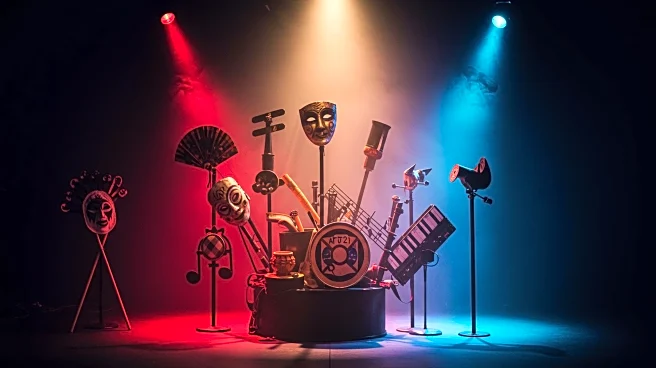What's Happening?
The Edinburgh festivals, known for their vibrant mix of cultural and political expressions, are facing criticism over their handling of free speech issues. The Edinburgh International Book Festival, a key event, has been particularly scrutinized for its programming choices. In 2023, climate activist Greta Thunberg withdrew from headlining the festival due to its sponsorship ties with Baillie Gifford, a firm criticized for fossil fuel investments. This led to a significant funding gap, which was later filled by a Scottish government grant. The festival's decision to exclude 'The Women Who Wouldn't Wheesht,' a collection of essays challenging gender self-identity legislation, has sparked debate about its commitment to free speech. Additionally, the National Library of Scotland excluded the book from its exhibition, citing concerns over hate speech. These actions have raised questions about the festivals' ability to balance diverse viewpoints while maintaining their reputation for defending free speech.
Why It's Important?
The controversy surrounding the Edinburgh festivals highlights the ongoing tension between cultural institutions and free speech. The decisions made by the Edinburgh International Book Festival and other venues reflect broader societal debates on climate change, gender identity, and corporate influence. The exclusion of certain voices and the reliance on government funding may impact the festivals' credibility and their role as platforms for diverse opinions. This situation underscores the challenges faced by cultural events in navigating political sensitivities while preserving their foundational principles of open dialogue and expression. Stakeholders, including authors, activists, and attendees, are closely watching how these festivals address these issues, which could influence future programming and sponsorship decisions.
What's Next?
The Edinburgh festivals may need to reassess their sponsorship strategies and programming choices to address the criticisms they face. The ongoing debate over free speech and corporate influence could lead to further changes in how these events are organized and funded. Authors and activists have already staged walkouts and protests, indicating that pressure for reform is likely to continue. The festivals' response to these challenges will be crucial in determining their future direction and maintaining their status as leading cultural events. Additionally, the broader implications for other UK book festivals rejecting similar sponsorships suggest a potential shift in how cultural institutions engage with corporate partners.
Beyond the Headlines
The situation at the Edinburgh festivals raises deeper questions about the role of cultural events in shaping public discourse. The balance between artistic freedom and political correctness is increasingly complex, with implications for how societies engage with controversial topics. The festivals' decisions may influence other cultural institutions worldwide, prompting discussions on ethical sponsorship and the limits of free speech. As these debates evolve, they could lead to long-term shifts in how cultural events are perceived and valued, potentially redefining their impact on society.









